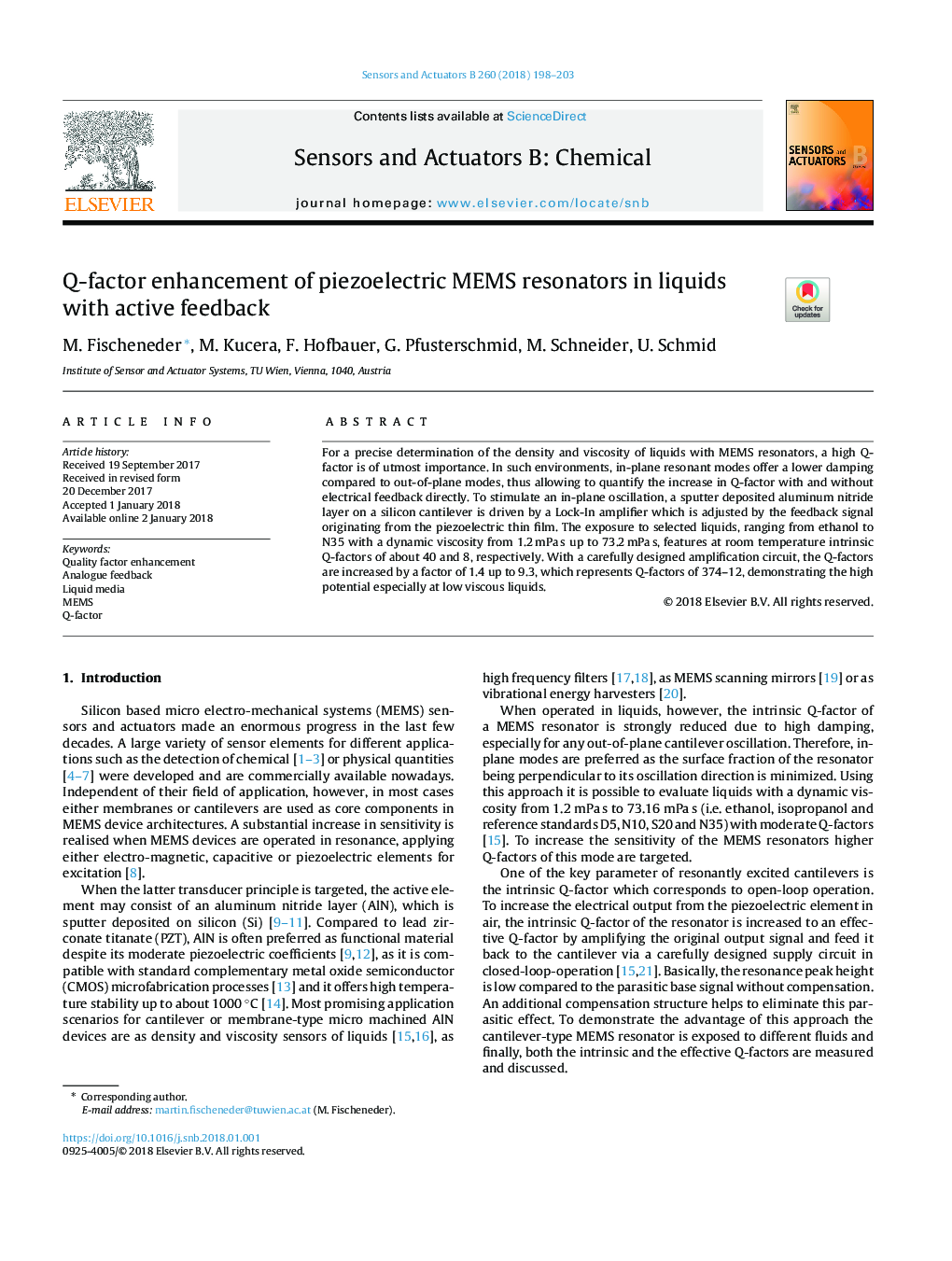| Article ID | Journal | Published Year | Pages | File Type |
|---|---|---|---|---|
| 7140775 | Sensors and Actuators B: Chemical | 2018 | 6 Pages |
Abstract
For a precise determination of the density and viscosity of liquids with MEMS resonators, a high Q-factor is of utmost importance. In such environments, in-plane resonant modes offer a lower damping compared to out-of-plane modes, thus allowing to quantify the increase in Q-factor with and without electrical feedback directly. To stimulate an in-plane oscillation, a sputter deposited aluminum nitride layer on a silicon cantilever is driven by a Lock-In amplifier which is adjusted by the feedback signal originating from the piezoelectric thin film. The exposure to selected liquids, ranging from ethanol to N35 with a dynamic viscosity from 1.2 mPa s up to 73.2 mPa s, features at room temperature intrinsic Q-factors of about 40 and 8, respectively. With a carefully designed amplification circuit, the Q-factors are increased by a factor of 1.4 up to 9.3, which represents Q-factors of 374-12, demonstrating the high potential especially at low viscous liquids.
Keywords
Related Topics
Physical Sciences and Engineering
Chemistry
Analytical Chemistry
Authors
M. Fischeneder, M. Kucera, F. Hofbauer, G. Pfusterschmied, M. Schneider, U. Schmid,
